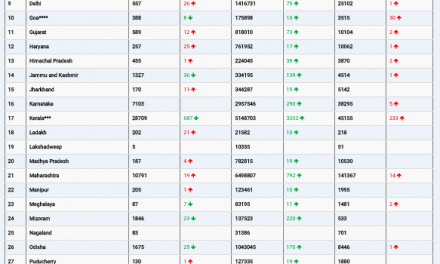January 11, 2025 – A recent study has uncovered critical insights into why women may face a higher risk of myocardial infarction (MI), also known as a heart attack, despite being generally thought to have some protection against cardiovascular disease (CVD).
The research, which focused on proteomic profiling, identified 45 proteins that are closely linked to the risk of MI. These proteins suggest that biological processes such as atherosclerosis, blood clotting, inflammation, immune responses, tissue injury and repair, coagulation, bone health, and iron metabolism play significant roles in the development of MI. The study highlights both gender-specific and universal factors that could help inform future prevention and treatment strategies.
Among the proteins found to have a strong association with a higher risk of MI were renin, follistatin, and retinoic acid receptor responder protein 2. These markers are believed to influence cardiovascular health by affecting inflammation and clotting mechanisms. Conversely, proteins such as tissue factor pathway inhibitor (TFPI), tumor necrosis factor receptors 1 and 2 (TNF-R1, TNF-R2), and placenta growth factor (PGF) were found to be linked with a lower risk of developing MI.
“The results suggest that while the biological mechanisms behind heart disease are similar in both men and women, certain proteins may be more influential in women,” said Dr. Titova, a lead researcher in the study. “This provides new avenues for targeted therapies and early detection strategies.”
In particular, the study explored the reasons behind higher rates of heart disease-related complications in women, despite the protective effects of estrogen. The researchers found that women might have a higher risk of dying within 30 days of an ST-segment elevation myocardial infarction (STEMI), even with current medical treatments. Additionally, known female-specific risk factors, such as early menopause and pregnancy complications, contribute significantly to CVD in women.
The study utilized data from two major biobanks to conduct a thorough analysis. The first, the Swedish SIMPLER biobank, included 11,751 older adults with no previous history of MI. After an average follow-up of 8.3 years, 3.4% of participants experienced an MI. To validate these findings, the research team also used data from the U.K. Biobank, which included 51,613 participants and a follow-up period of 12.3 years. Genetic data from the CARDIoGRAMplusC4D consortium and FinnGen studies further enriched the analysis.
However, the study’s authors cautioned that the results may not apply universally to populations of non-European ancestry, as the majority of participants in the study were of European descent.
This groundbreaking research brings to light the critical role that specific proteins play in shaping cardiovascular health and offers new insights into the gender disparities observed in heart disease. With further studies, these findings could lead to more personalized and effective treatments for women at risk of heart attacks.
For more information, visit MedPage Today.











